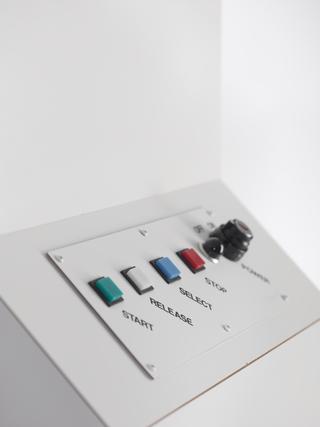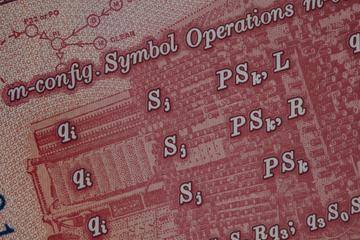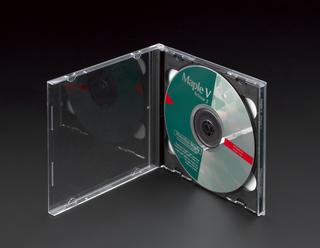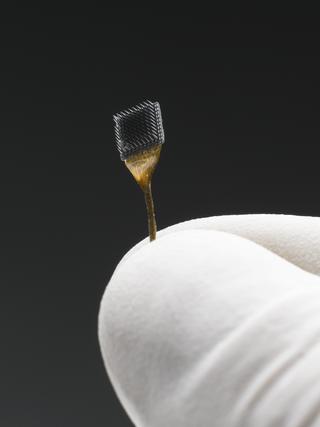
'Turing's Law' campaign placard
- Made:
- 2013-2017




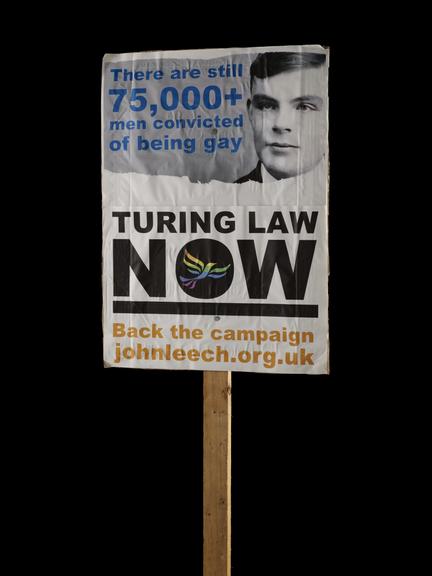

Placard produced by the Liberal Democrats as part of the 'Turing's Law' campaign, 2013-2017.
Alan Turing was a brilliant mathematician and a computing pioneer. His code-breaking achievements and visionary ideas about machine intelligence made him one of the most influential thinkers of the 20th century.
In 1936, Turing proposed a machine that could follow instructions in its memory to solve any problem. He set out the theoretical basis for the modern computer. During the Second World War, Turing played a vital role in government code-cracking efforts at Bletchley Park.
After the war, he designed an innovative, stored program computer, the ACE. When the test machine ran in 1950, it was the fastest computer in existence.
Alan Turing arrived in Manchester in 1948 as Deputy Director of Manchester University’s Computing Machine Laboratory, to work on a new, stored-program computer. Turing did some of his most creative thinking in Manchester. He grappled with the question of whether machines can think and explored the mysteries of patterns in nature.
Turing’s life changed in 1952 when he was convicted for having a sexual relationship with a man. Under the anti-gay laws of the time, Turing was charged with gross indecency. To avoid prison, Turing accepted ‘treatment’ with female hormones. The full circumstances surrounding his death two years later are unclear, but the official verdict was suicide.
In 2012, a campaign spearheaded by then Liberal Democrat MP for Manchester Withington, John Leech, and backed by numerous influential scientists and politicians, fought for the overturning of Turing's gross indecency conviction.
In 2013, Turing received a royal pardon for the conviction. The government acknowledged the discriminatory and unjust treatment he received under the laws of the time.
After further petitioning by campaigners, four years later, the government introduced ‘Turing’s Law’,
which pardoned thousands of other men convicted under historical anti-gay laws in Britain.
Details
- Category:
- Computing & Data Processing
- Object Number:
- 2021-1646
- Materials:
- paper (fibre product), plastic (unidentified) and wood (unidentified)
- Measurements:
-
overall: 190 mm x 440 mm x 20 mm, .56 kg
- type:
- campaign placard
- credit:
- Manchester Liberal Democrats, Office of John Leech and Pablo O’Hana on behalf of Apostrophe Campaigns
